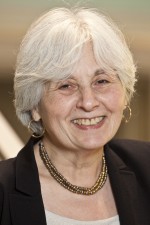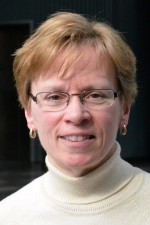BY JEANNE MALONEY AND ANN RUBENZAHL
As we move toward a greener economy and greater use of clean energy, we have an opportunity for communities and regional employers to maximize available resources and for community colleges to respond by designing programs to meet the new workforce needs of green/sustainable businesses.
The American Association of Community Colleges recognized this important link between green jobs and community colleges when it developed its Sustainability Education and Economic Development Center. The focus for the center is “to advance sustainability and clean technology education programs at community colleges by sharing innovative practices to help college administrators, faculty and staff build the green economy. More than 470 community colleges are members of SEED, and more than 30 college presidents make up SEED”™s Sustainability Task Force.” Examples of the work being conducted by the center include its partnership with the U.S. Department of Energy in the Better Buildings Workforce Guidelines project, which will develop the national skills standards and credentialing required for industry needs in commercial energy management, energy auditing and building commissioning, and will also work with educational partners to align curricula with job-skill requirements.
“This integration of vocation and employment-oriented goals in academic educational programs has been termed the new vocationalism movement ”¦ and is based on a partnership between community colleges and businesses and business/industry associations that leverages their combined knowledge of labor markets, skills (and) pedagogy” to develop programs, according to a report from the Center for American Progress. The intent of these partnerships is to provide access to educational/training programs that provide the skills required for employment in area businesses, and result in the earning of industry-recognized credentials, the capacity to earn a family-sustaining wage and opportunities for further learning. From a business/industry perspective, the result is enhanced regional/national competitiveness.
Filling a need nationally
Nationally, there are exemplary examples of new vocationalism. When Columbia Gorge Community College in The Dalles, Ore., noted the emergence of a wind energy industry in its area, the college speculated that turbine companies would likely need a local workforce to service the windmills. With help from workforce development representatives, the college quantified a regional need for more than 300 wind turbine technicians. The community college partnered with industry and workforce development representatives, including Acciona Energy North America, Black & Veatch, Intel and the Army Corps of Engineers, to develop a pilot curriculum for a renewable energy technology program. The partnership created the opportunity for industry representatives to contribute to the development of the curriculum and for college faculty to access professional development opportunities when they spent time at wind turbine sites learning firsthand the skills they would need to impart to students. As a result of the pilot offering, Columbia Gorge Community College now offers one- and two-year programs that prepare students to work in wind-generation, hydro-generation and automated manufacturing.
The programs are filled to capacity, and CGCC reports that 80 percent of those who complete the program and want to work in a wind plant are hired.
Three thousand miles east of Columbia Gorge Community College, Northern Maine Community College partnered with wind turbine company Vestas to develop the college”™s wind-power technician program, a 71-credit Associate of Applied Science degree that offers broad fundamental training in the electrical, electronic and mechanical aspects of the wind power industry, with a focus on wind turbine maintenance and electrical power production. This training program was the first of its kind at a post-secondary institution in New England and is designed to provide a pipeline of qualified employees for the wind turbine industry.
Greenfield Community College, in western Massachusetts, recently won the American Association of Community Colleges”™ Green Genome Award for overall sustainability achievement. Greenfield was an early adopter of the new vocationalism mindset and partnered with local construction companies and electricians to help develop, and even teach, technical classes required for the solar photovoltaic industry. The collaboration led to two 45-hour courses aligned with the industry standards of the North American Board of Certified Energy Practitioners. Subsequently, the college received a grant from the Massachusetts Workforce Competitiveness Trust Fund to provide renewal energy training for employees of local construction firms. The college leveraged this experience and utilized it as the basis for the development of the renewable energy and energy efficiency program that offers both a certificate and two-year degree. These workforce development efforts paid off; almost 500 people enrolled in the program from 2007 to 2010, and more than 40 percent of the students were underemployed or unemployed. During a period of job cuts and company closures, 50 students got jobs, 81 earned wage increases and 25 were promoted.
Training in New York
New York ranks among the nation”™s leaders in job announcements for employment in the clean energy and clean transportation businesses. In 2014, New York demonstrated its commitment to clean energy generation and manufacturing through projects such as the development of the SolarCity advanced solar cell manufacturing facility in Buffalo and the SUNY College of Nanoscale Science and Engineering clean technology laboratory in Albany. Collectively, these two initiatives are expected to create 6,000 jobs.
Regionally, community colleges have been engaged in providing training programs to serve a variety of green initiatives. The SUNY Clean Energy Technology Training Consortium is a partnership that includes Dutchess, Orange, Rockland, Sullivan, Ulster and Westchester community colleges. Led by Ulster Community College and supported by the New York State Energy Research and Development Authority, the goal of the consortium is to deliver education and training that is aligned with industry standards in the areas of photovoltaic, solar thermal, small wind-turbine and geothermal technology, green building, energy efficiency and solar manufacturing. Consortium programs such as the Contractor Series Workshops bring “together a community of building science and energy efficiency contractors to develop skills that will enhance their ability to provide service to the community with the efficiency and professionalism needed to move New York state forward in creating green jobs and a greener state.” Led by industry experts and supported by NYSERDA, the workshops lead to industry certifications and preparation for employment in a variety of green industries. The continuing partnership between NYSERDA and the community college consortium demonstrates the confidence that industry has in community colleges to provide the training required to build the Hudson Valley”™s regional workforce.
In fall 2015, the SUNY Clean Energy Technology Training Consortium will enhance its certified production technician curriculum by adding the Green Production Module. With financial support from NYSERDA, this offering and related programs are offered at a fraction of the cost that employers would pay to bring the training to their facilities. The courses provide employers with the opportunity to provide up-skilling for current employees and to increase the capacity of their businesses.
In addition to its partnership with the consortium, Westchester Community College has programs that focus on a green economy, such as its certificate in sustainable vegetable production that is offered in partnership with the Hilltop Hanover Farm and Environmental Center. The college is also engaged in discussions with a local company regarding a partnership that would enhance the college”™s energy systems program (photovoltaic systems design course). The proposed partnership is in the contract development phase and would enable students to get hands-on experience with real-world equipment and concurrently provide key data for the local business partner.
The workforce needs of new and emerging green/sustainable businesses provide another opportunity for community colleges and businesses to work together. With community colleges offering the required training and employers providing real-world experience for current and new employees, the result is a productive workforce that enhances the capacity of businesses to contribute to regional economic growth and development.
Jeanne Maloney is director of special projects in the division of continuing education and workforce development at Westchester Community College. She can be reached at 914-606-6799 or jeanne.maloney@sunywcc.edu. Ann Rubenzahl is assistant dean of continuing education and workforce development at the college. She can be reached at 914-606-6618 or ann.rubenzahl@sunywcc.edu.



















